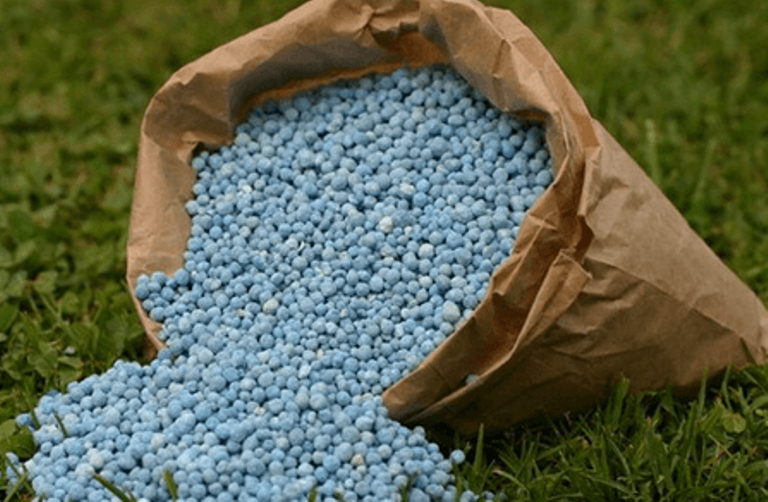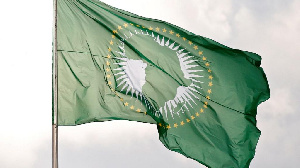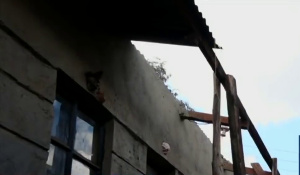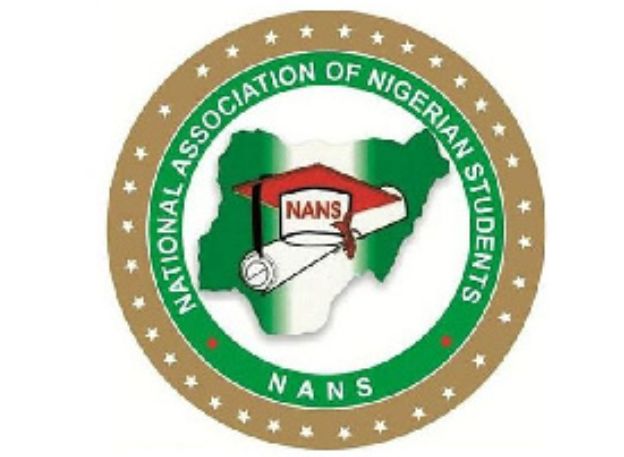News Africa
Why does Nigeria need free fertilizers from Russia

Understandably, Moscow has embarked on soliciting full-fledged support for its ‘special military operation’ in neighbouring Ukraine by offering ‘no-cost delivery’ of grains and fertilizers promised by Russian President Vladimir Putin. Putin has reiterated the free deliveries of grains and fertilizers to ear-deafening applause during the last inter-parliamentary conference Russia-Africa held in March.
Foreign Minister Sergey Lavrov made this one of the core content of his speech during his last trip to South Africa through Kenya to Burundi and Mozambique in southern Africa. Malawi and Kenya have recieved their consignments. Moscow intends to deliver a shipment of Russian fertilizers to Nigeria free of charge in the near future, Foreign Minister Lavrov said at a press briefing in Burundi.
“Last September, President Vladimir Putin announced that we were ready to deliver 300,000 tons of our fertilizers, illegally seized in EU ports, to African countries free of charge. Fully in line with colonial practices and habits, the EU leadership blocked this initiative. It took us 6 months to get, at least, the first shipment of 20,000 tons to Malawi, and just recently another shipment of a similar amount of fertilizer was delivered to Kenya. The same shipment is scheduled to go to Nigeria soon,” he stressed in his speech in Bujumbura, capital of Burundi.
In a statement, Russian company called Uralchem-Uralkali was the source of the gift from Russia with facilitation from the United Nations World Food Programme (WFP). Uralchem-Uralkali Group is owned by Dmitry Mazepin who is a close confidante of Putin. He is under European Union (EU) sanctions. But all of this comes at the cost of enormous efforts by the World Food Programme and UN Secretary General Antonio Guterres to “overcome the openly Russophobic position of EU members who oppose any initiatives that in one way or another will help developing countries, if such assistance is provided by the Russian side.”
Without mincing words, Lavrov emphasized that Moscow’s humanitarian assistance was intended to alleviate poverty and support needy African countries in the light of its ‘special military operation’ in Ukraine and Western imposed sanctions that have driven up commodity prices. Fertilizer prices have also been rising as the Russia-Ukraine crisis has disrupted shipping operations.
Russian experts have said in policy reports that African leaders are rather looking forward to exploring ways for effective external collaboration which would support transforming untapped resources, modernize agriculture add value by industrializing. There is considerable scepticism if Russia would really undertake infrastructure projects similar to what China has done in the continent. Long-term policy actions are therefore necessary for addressing sustainable developments in the continent.
Quite recently George Nyongesa, a Senior Associate at the Africa Policy Institute in Nairobi, Kenya, and a Tutorial Fellow and PhD candidate at University of Nairobi, observed that Russia’s ineffective policy strategies and challenges in implementing its policy goals are noticeable in many African countries. The strongest aspect of Russia’s relations with Africa should be robust investment in critical sectors and economic cooperation.
Professors Irina O. Abramova and Leonid L. Fituni, Institute for African Studies, co-authored a report last year. The report said, in part, that Russians officials characterize “Africa as the most backward and problematic region of the world in Russian public opinion” while Western and European experts referred to “Africa the continent of the 21st century: attributing this to the stable growth rates of the African economy over the past 20 years, and the colossal resource and human potential of the African region.”
The report acknowledges the fact that African countries consider Russia as a reliable economic partner, and it is necessary to interact with African public and private businesses on a mutually beneficial basis. In this regard, Russian initiatives should be supported by real steps and not be limited to verbal declarations about the “return of Russia to Africa,” especially after the Sochi gathering, which was described as very symbolic.
Surprisingly Russia continues broadly propagating that Africa is poor among its public and further claims it is helping to alleviate abject poverty. “Today, for instance, Nigeria offers Russia the advantage of that cheap and robust labour. Given Russia’s recent experience of sanctions by America and its western allies, a new model of doing business with Africa through investment has become, not only sustainable but also imperative,” as argued by Professor Shehu Abdullai Yibaikwal, Ambassador Extraordinary and plenipotentiary of the Federal Republic of Nigeria with concurrent accreditation to the Republic of Belarus.
In his academic lecture at the Diplomatic Academy of the Russian Federation, the Nigerian ambassador and an academic professor categorically placed emphasis on the fact that “perhaps one of the sectors where this model of doing business can be symbiotically harnessed is in the field of agriculture and its value chain as a result of the steep rise in the large African market and the projected certainty of huge returns on investment in this sector.”
For obvious reasons, the world is changing and external players are also adopting strategic models to engage with Africa. In any case, Africa has the opportunity to gain from ‘no-cost deliveries’ of whatever from Russia. That is practically only for a short-term, and fortifies the propensity for import-dependency. According to its own information, Russia has kept a low profile for two decades after the Soviet collapse and consequently lags behind in (re)engaging with the continent. The reality is that African leaders are choosing development partners with funds to invest in the economy.
Perhaps, the best is to forge mutual collaboration with the local fertilizer industry in Nigeria. Africa’s richest businessman Aliko Dangote opened the continent’s largest fertilizer plant in March 2022. The fertilizer factory sits on 500 hectares (1,235 acres) of land on the outskirts of Lagos. It has a capacity to produce 3 million metric tons yearly, making it the second largest plant in the world. The $2.5 billion ammonia fertilizer plant was commissioned by Nigeria’s former President Muhammadu Buhari in Lagos.
The Nigerian government promoted the use of inorganic fertilizers, but that has changed. “We are lucky to have this plant,” Dangote said last year. “It is coming at the right time with the Ukraine-Russia conflict as both Ukraine and Russia control substantial amounts of agricultural inputs. This can help a lot of African countries. The export market is a seller’s market.”
Central Bank Governor Godwin Emefiele said reducing fertilizer imports was a key pillar in Buhari’s diversification agenda, taking the country from being a net importer of the commodity to self-sufficiency. “Indeed, during the past five years, over 35 million bags of blended fertilizer has been produced in Nigeria. Consequently, our import bill on fertilizer has not only declined significantly but we are also witnessing rising investment in the fertilizer industry, such as the one being commissioned today by the Dangote Group,” he said during a speech at the inauguration of the plant.
Governor Godwin Emefiele indicated with precision that the newly-established plant is still creating huge opportunities in the area of job creation, warehousing, transport and logistics. This will create significant wealth, reduce poverty and help in securing the future. The Dangote Group is second largest employer in Nigeria after the Federal Government.
According World Fertilizer magazine, Dangote plans exports from the plant to Brazil, which relies heavily on Russia for imports of fertilizer. Shipments will also go to the United States, India and Mexico, and the factory will supply all the major markets in sub-Saharan Africa.
The many faces of Russia’s diplomacy are playing the lip-service combined with theoretical rhetorics across Africa. As mentioned previously, it has to pull away, at least a bit, from state-centric approaches of diplomacy and to engage the private sectors which are drivers of economic growth and expected development. In this sense, it must have a widely different approach, especially to development-oriented questions in Africa.
With delivery of free fertilizer to Nigeria, Moscow is only recalibrating its African strategy. Nigeria absolutely does not need free fertilizer from Russia. It rather appreciates Russia’s participation in corporate projects such as Ajeokuta Steel Plant located in Ajeokuta, Kogi State. Worth to remind that Nigeria is a leader in Africa as an energy power and in the financial market. With its estimated 220 population (2023), Nigeria’s economy is the largest in Africa and the 31st-largest in the world by nominal Gross Domestic Product (GDP).
Source: Thepressradio.com|





